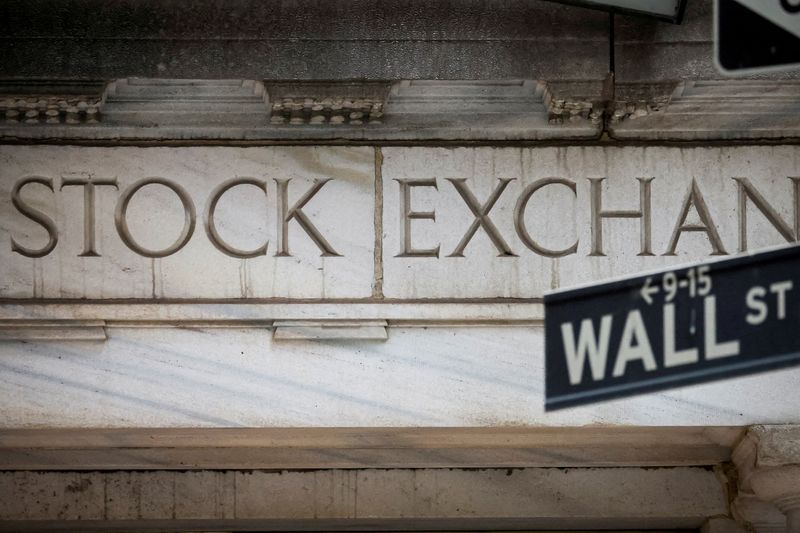By Amruta Khandekar and Shubham Batra
(Reuters) - U.S. stocks dropped on Wednesday as turbulence at Credit Suisse (SIX:CSGN) renewed fears of a banking crisis, while data hinting at economic weakness kept alive hopes of a less aggressive monetary policy move by the Federal Reserve in March.
U.S.-listed shares of Credit Suisse slid 24.3% to hit a record low, after the Swiss bank's largest investor said it could not provide more financial assistance to the lender.
Fuelling hopes of a less hawkish Fed policy, data showed retail sales fell 0.4% last month from a growth of 3.2% in January, while economists polled by Reuters had expected a contraction of 0.3%.
A separate report showed U.S. producer prices unexpectedly fell in February and the rise in prices in January was not as large as initially thought, offering some hopeful signs in the fight against inflation.
The data comes at a time when the collapse of SVB Financial and peer Signature Bank had already fanned fears about the health of other banks, fuelling hopes that the Fed would steer clear of sharp rate hikes at its next meeting to ensure financial stability.
Yield on the 10-year Treasury notes fell to 3.47%, while that on the two-year note, which best reflects interest rate expectations, fell to 3.87% but was off session lows hit after the data.
Traders now see equal chances of a 25-basis-point rate hike and a pause at the Fed's March meeting.
While assurances and emergency measures by U.S. authorities had helped regional banks stage a rebound in the previous session, the lenders nearly erased those gains in early trade.
First Republic Bank fell 13.1% while peers Western Alliance Bancorp and PacWest Bancorp slid 7.1% and 18.4%, respectively, before trading in their shares was halted for volatility.
Big U.S. banks including JPMorgan Chase & Co (NYSE:JPM), Citigroup (NYSE:C) and Bank of America Corp (NYSE:BAC) fell between 5% and 1%.
The KBW regional banking index slid 3.8% while the S&P 500 banking index dropped 4.2%%.
"Anything negative from any highly visible institution, in this case Credit Suisse, is going to have ripple effects across the financial sector," said Michael James, managing director of equity trading at Wedbush Securities.
"Given all the turmoil with Silicon Valley Bank and Signature Bank, expectations have dramatically risen come that the Fed will keep rates unchanged, or maybe raise them (by) 25 basis points."
Wall Street rallied in the previous session after a highly anticipated inflation report showed a slowdown in February consumer prices growth, spurring hopes of a smaller rate hike at the conclusion of the Federal Reserve's meeting on March 22.
At 9:47 a.m. ET, the Dow Jones Industrial Average was down 417.25 points, or 1.30%, at 31,738.15, the S&P 500 was down 48.11 points, or 1.23%, at 3,871.18, and the Nasdaq Composite was down 104.12 points, or 0.91%, at 11,324.03.
Shares of Charles Schwab (NYSE:SCHW) Corp fell 1.9%, a day after its chief executive said the firm has enough liquidity.

Declining issues outnumbered advancers for a 6.10-to-1 ratio on the NYSE and for a 3.71-to-1 ratio on the Nasdaq.
The S&P index recorded no new 52-week highs and 31 new lows, while the Nasdaq recorded 5 new highs and 203 new lows.